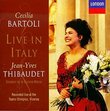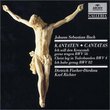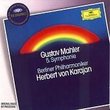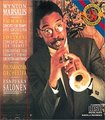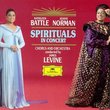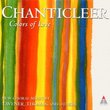| All Artists: Pyotr Il'yich Tchaikovsky, Leopold Stokowski, NBC Symphony Orchestra, New York City Symphony Orchestra, Philadelphia Orchestra Title: Stokowski Conducts Tchaikovsky Symphonies Members Wishing: 0 Total Copies: 0 Label: Classica D'oro Original Release Date: 1/1/1934 Re-Release Date: 4/3/2001 Genres: Special Interest, Classical Styles: Marches, Historical Periods, Modern, 20th, & 21st Century, Symphonies Number of Discs: 2 SwapaCD Credits: 2 UPC: 723724075627 |
Search - Pyotr Il'yich Tchaikovsky, Leopold Stokowski, NBC Symphony Orchestra :: Stokowski Conducts Tchaikovsky Symphonies
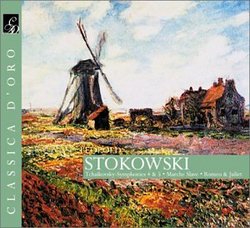 | Pyotr Il'yich Tchaikovsky, Leopold Stokowski, NBC Symphony Orchestra Stokowski Conducts Tchaikovsky Symphonies Genres: Special Interest, Classical
|
Larger Image |
CD DetailsSimilarly Requested CDs |
CD ReviewsThe Tchaikovsky of Your Dreams! A Fresh Breeze from the Pas Andre Gauthier | 08/28/2007 (5 out of 5 stars) "Leopold Stokowski and Tckaikovsky were made for one another; their relationship was never better than in these recordings of the Fourth and Fifth Symphonies of the Russian genius.
The Fourth is from 1941 with the NBC Symphony Orchestra best known for its creation by Stoki's supposed arch rival, Arturo Toscanini, the NBC was originally created for both men! What a wild concept that is. Stokowski gives a reading of the first of Tchaikovsky's final big three that had me on the edge of my chair right from the opening downbeat. If you know the Mravinsky version, it has that sort of speed at times, but Stokowski is able to shape, with huge arches, every salient phrase in the piece. That's what Mravinsky lacks. Most modern day conceptions don't even relate to Stokowski's sense of the dramatic that is the key to Tchaikovsky. Take the last movement as an example. It starts very rapidly and then speeds up to the main theme. Here Stoki makes a grand ritard. to emphasize the moment. He does this sort of thing in many places, In one instance a 4 quarter note, single pitch grouping is played with full bow by the stings and then immediately is sped up as it is played in 8th note diminution as well. I never would have thought this sort of approach could work, nor that any orchestra could bring it off. But the NBC, trained to within an inch of it's life by Toscanini delivers every shift in tempo with astonishing ability. Of course this is a "pre-tape era" mono recording and is therefore subject to a reduced high frequency. You'll soon forget all that. The noise reduction is surprisingly successful in terms of not disturbing the actual recorded sound. No obvious "special effects" have been added, although venues are not given in order to better judge this. The Fourth sounds akin to the acoustic of Carnegie Hall in the early 40s. No matter. This reading could have been made in 1910 as far as I'm concerned and it would still rank as number one on my list! The Fifth is the very famous Philadelphia recording from 1934. I grew up on the 78s. But hearing it cleaned up and put together is an experience that is second to none. Again, stereo, hi-fi, blah, blah, it doesn't matter. The performance is too moving to be countered by any technical consideration. The portamenti of the strings, the free bowing, the ever shifting tempi executed in small increments in most cases - all make for a unique reading of Tchaikovsky's Fifth. No one in my experience manages anything close to this interpretation. These pieces, long lashed to a tradition of deadly drudge mixed with flacid phrasing are suddenly resuscitated so they may bring back what might have been just a dim memory had this recording not been reissued. The hundreds of homogenized attempts of the CD era at making Tchaikovsky always sound like the composer of the "Nutcracker" rather than the genius who penned these major symphonic outcries has made most stereo recordings impossible to take seriously. "Romeo and Juliet" and the "Marche Slave" round out this two CD set with equally vivid performances. The "Romeo" is recorded with the New York City Symphony Orchestra, a now defunct group, as is the NBC. All three ensembles have their own very distinct qualities made more obvious by putting them one next to another. That's another refreshing accomplishment that was made as long as 73 years ago. The Maestro (a proper appellation here) demonstrates via all the ensembles present the profound romantic style of Tchaikovsky that should be stamped on the hearts of every modern day orchestra, but has been choked out of so many through nothing more than pedantry on the podium. The NBC, still shows the Toscanini discipline, but has much more warmth than the Italian maestro could generate. The Philadelphia, once considered the "Rolls-Royce of Orchestras" by the 1960s, shows why it earned that name. What a shame that the "come scrito" crowd has hijacked the podiums of the world with very rare exception. If you have no other Tchaikovsky recording in your posession, BUY THIS TWO CD SET! I rarely have this much praise for any recording. But the grouping here presented, so well produced and so cheap to buy, is something that should be in every music lover's collection, from the beginners few to the "lunatic fringes" 50,000 CDs and LPs; and most of all they should belong to EVERY music critic! 10 stars from me!" |

 Track Listings (5) - Disc #1
Track Listings (5) - Disc #1